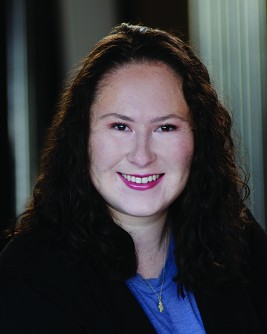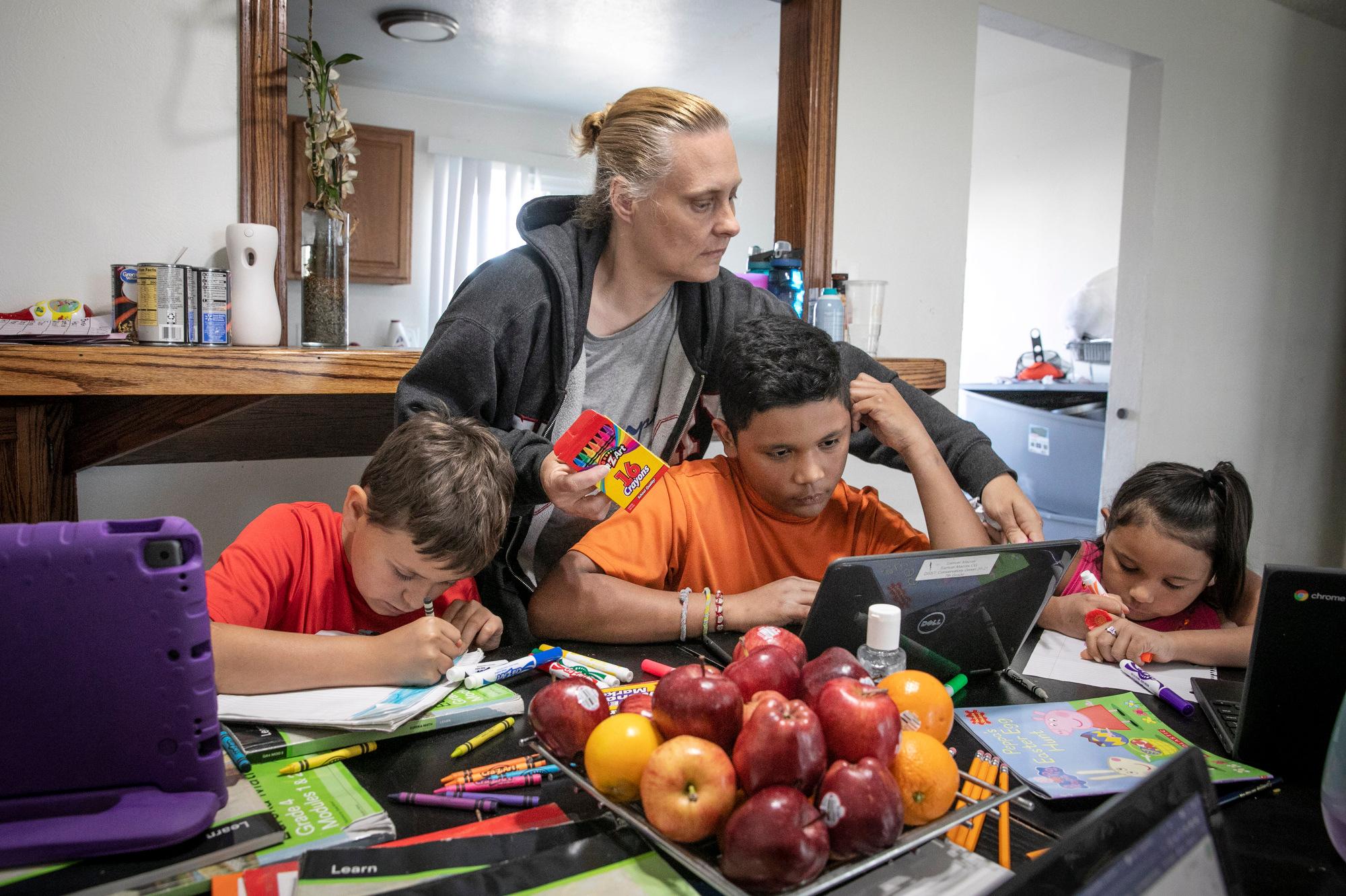
Women overtook men in the number of payroll jobs for the second time ever in January 2020.
Then, the COVID-19 pandemic hit and women across the country quit their jobs or stopped looking for work. Many blamed a lack of child care.
"I used to work at a nursing home and I had to quit in September because my younger kids were failing elementary," Heather Hernandez said.
Hernandez has 10 children living and doing remote school at her Denver home. Some are her biological children, others are grandchildren she has adopted. She says her days at work in Aurora last fall were constantly broken up by having to call home and check on schoolwork. Her middle and high school students tried to help keep the younger ones on track during the first part of the pandemic school year, but they could only do so much.
"It was too hard for them to be doing their work for seven to eight hours, plus helping them. Their teachers were complaining," Hernandez said. "It was just overwhelming. And I couldn't put that responsibility on my middle school and high school kids because I didn't want them to fail."
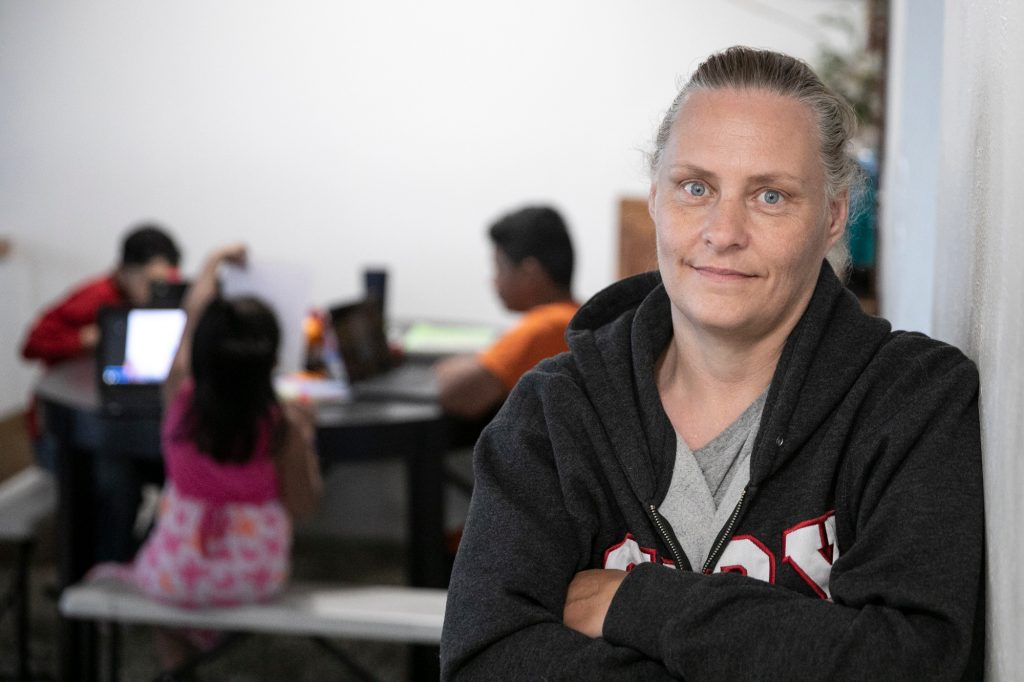
The pandemic set all women back, especially those who have low incomes or are people of color.
A study by the Kaiser Family Foundation found one in ten working mothers with children under 18 said they left a job due to COVID, and half of them cited school closures as one of the main reasons. Among mothers who didn’t quit their jobs, about half took unpaid time off to care for and school their children.
That percentage is even higher among women who have low incomes or are non-white. Black and Hispanic women were almost twice as likely as white women to have left a job, according to the Kaiser report.
De Annrea Carter Harris quit her job as an office administrator at an estate planning firm to provide more support for her teenage son, who has several mental illness diagnoses that make virtual school difficult.
"I like to tell everybody, my family is the poster child of what happens when you have a kid that has mental health issues and everything falls apart and there are no services," Carter Harris said.
She said her son used to get in-person support at school, but when schools closed, the family lost that option. She also has a 10-year-old daughter who requires her own attention. Juggling it all has been exhausting.
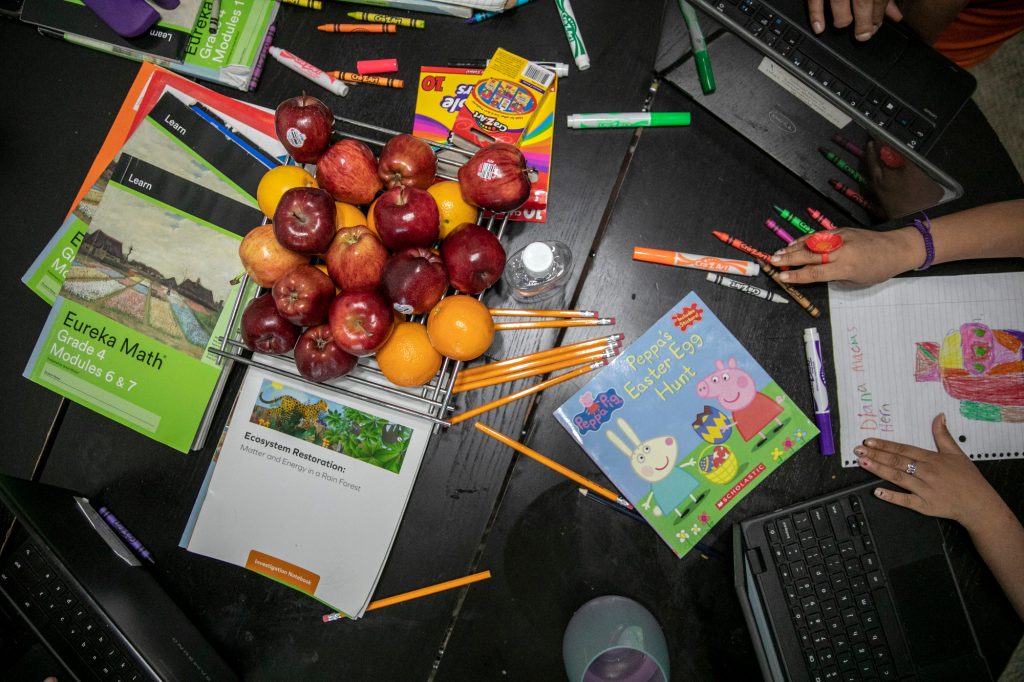
"I think that the COVID-19 pandemic has produced an absolute care crisis that has had severe consequences for women, in all parts of the economic spectrum," said Rachel Rinaldo, a sociology professor and researcher at the University of Colorado Boulder. "It definitely has the potential to set back gender equality for decades to come, I think particularly for women of color."
Rinaldo recently published a study in which she interviewed Colorado parents about how they handled the closure of most schools and daycare centers.
"I was absolutely struck by the amount of anxiety and stress and even trauma that many parents were dealing with, but particularly working mothers," Rinaldo said.
Most of the parents she interviewed were well-educated and had middle-class incomes, but even among that comparatively privileged group, Rinaldo found that in about 70 percent of the couples, women reported doing the majority of the child care and the remote schooling. Even when both parents were working from home, the care tasks still ended up being a mother’s responsibility.
"There weren't people who were saying, 'It's a woman's job to do these things,'" she said. "And yet, they still fell back on these old patterns."
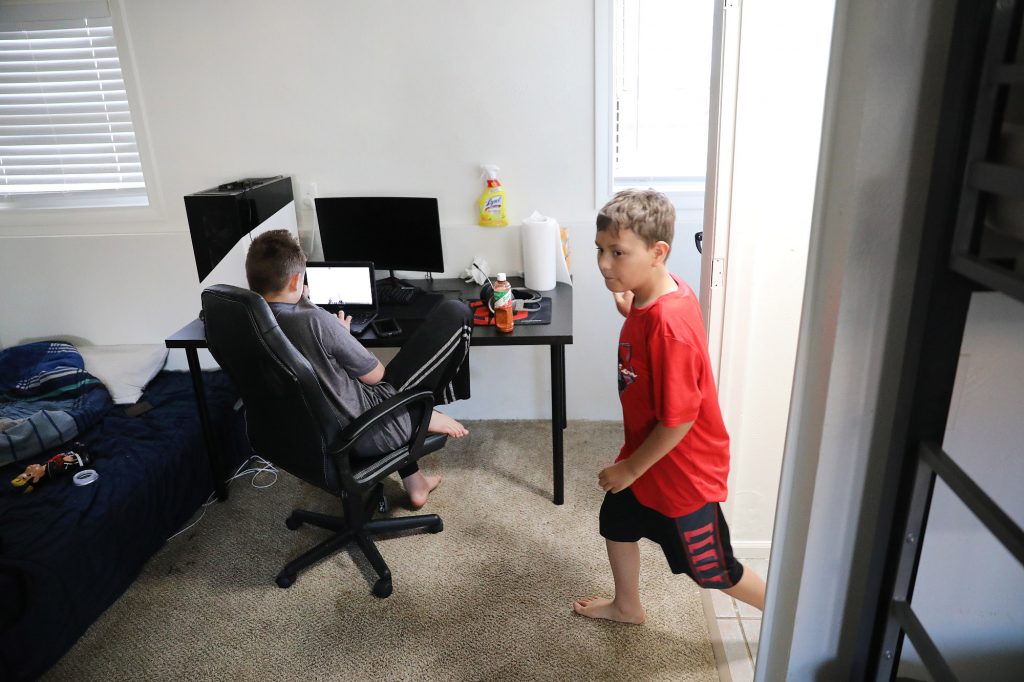
Mothers who had to quit their jobs during the pandemic say their mental health is suffering, too.
The Kaiser study also found over half of mothers with school-age children said that the stress and worry of the pandemic has affected their mental health. While some parents like Harris have relished extra time with their children this year, she said she misses the human connection and pride she had at her old job.
"I feel less than," she said. "I feel like I'm not contributing to my household. I know there are amazing women who are built to be stay-at-home. I am not one."
But some women have frustrations that go beyond their practical realities.
Clare Prickett is a mom of three. Early on in the pandemic, she debated whether she was making the right decision by cutting back on her work hours — even though she had few alternatives with her child care options closed.
"It's hard for me because I'm a super feminist and I remember having this conversation with so many people," she said. "I remember my step-mom said, 'Well part of feminism is that women can choose what they want to do and if that's what you want to do, that's okay.'"
Rinaldo’s interviews did clearly show that one group has managed to keep the chores and child care split somewhat even: same-gender parents. The LGBTQ couples she spoke with had a significantly more equitable division of labor because they had ongoing conversations about the balance of career and care long before the pandemic started.
Rinaldo says it might be helpful for straight couples to follow that lead and talk more openly about how to build an equitable home.
